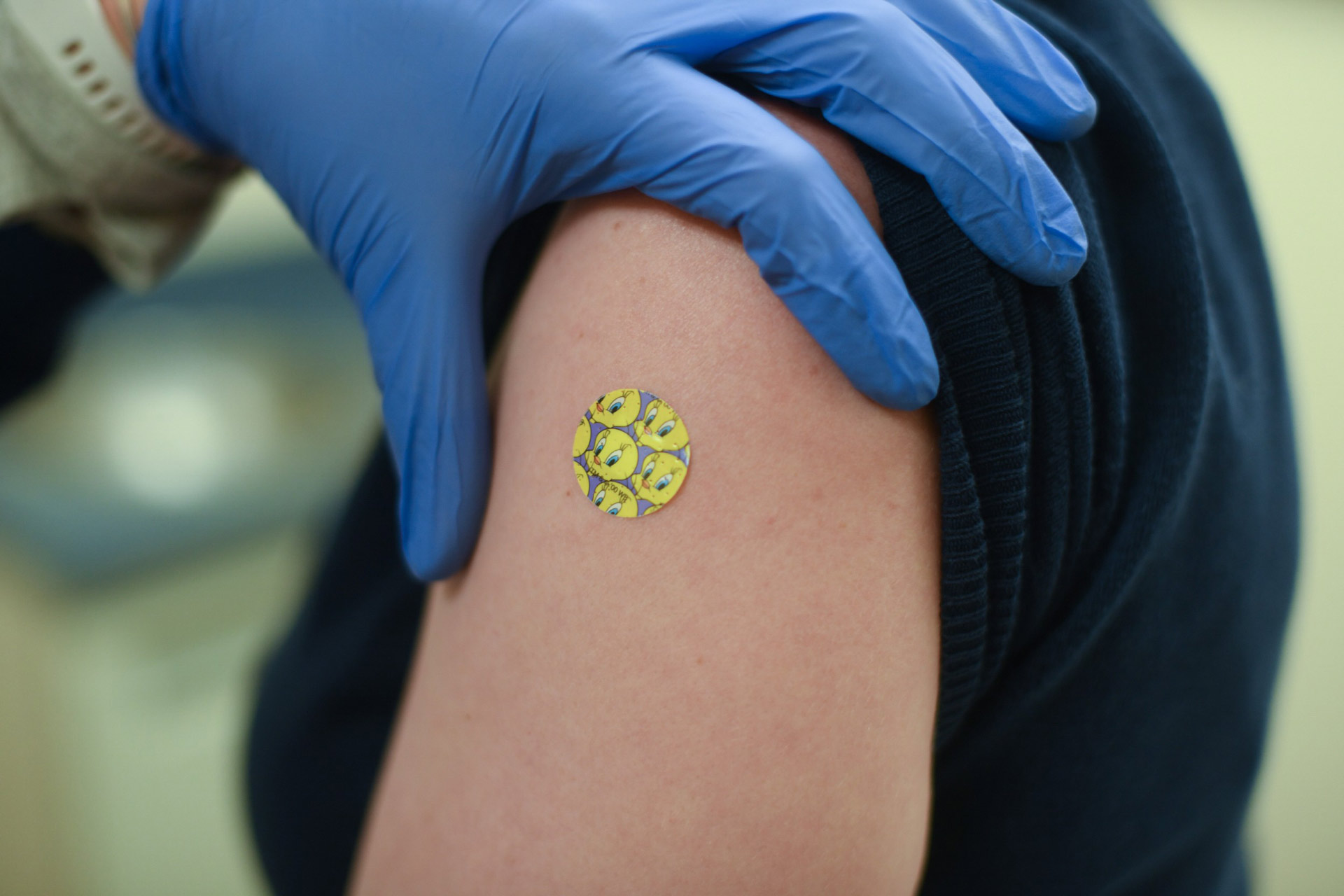Routine immunizations are an important part of your child’s healthcare and offer your child protection against many viruses and bacteria.
What are immunizations?
Immunization (vaccination) is the process of giving a person very small amounts of viruses or bacteria through a vaccine without causing the person to get sick. Vaccines help the immune system know and remember different diseases so that it can stop them from causing future illness.
Standard Immunizations
| < 1 week | Hepatitis B |
| 2 / 4 / 6 months | Diphtheria / Tetanus / Pertussis (DTaP), Polio (IPV), Pneumococcus (PCV-13), Hemophilus influenzae type B (HIB), Hepatitis B, Rotavirus |
| 1 year | Measles / Mumps / Rubella (MMR), Varicella, Hepatitis A |
| 15 months | Pneumococcus (PCV-13), Hemophilus influenzae type B (HIB) |
| 18 months | Diphtheria / Tetanus / Pertussis (DTaP), Hepatitis A |
| 4 – 5 years | Measles / Mumps / Rubella (MMR), Varicella, Diphtheria / Tetanus / Pertussis (DTaP), Polio (IPV) |
| 11 – 12 years | Human Papilloma Virus (HPV), Tetanus / Diphtheria / Pertussis (Tdap), Meningococcal |
| The seasonal influenza virus changes rapidly, and immunization is recommended yearly for all children to provide continued protection starting at six months of age. If your child is not yet six months old, make sure all caregivers are immunized to “cocoon” your child and prevent transmission of the influenza virus. | |
| Travelers may need additional immunizations beyond the routine immunizations. Call the office before you take your child on an international vacation to see if any extra immunizations will be needed. | |
Preparing Your Child for Immunization
While the pain associated with immunizations is minor, immunizations can create stress and anxiety.
To reduce the stress of immunizations, be open and honest with your child about the immunizations that will be needed at their visit and be clear that these are necessary and not optional.
When the immunizations are given, try to distract your child – sing a song, blow bubbles, have your child blow on a pinwheel or even cough. For a baby, swaddle your child with legs exposed and offer a pacifier during the immunization, then follow the immunization with breastfeeding or gentle swinging.
If your child is old enough, encourage them to blow away the pain and offer to give them a big hug, chest to chest, while they receive the immunization.
If your child finds vaccinations stressful despite these distractions, ask about a prescription numbing cream to help with the next immunization. Most importantly, do your best to stay calm while you help your child through the immunization, and this will help your child to stay calm.

Questions
Many parents have questions about immunizations. Please don’t hesitate to call the office at 802-888-7337 or schedule an appointment to have an open conversation about the concerns you have related to immunizations.

